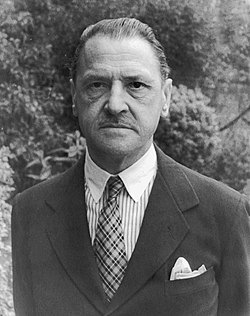W. Somerset Maugham Quote
Humility is a virtue that is enjoined upon us. So far as the artist is concerned, with good reason; indeed, when he compares what he has done with what he wanted to do, when he compares his disappointing efforts with the great masterpieces of the world, he finds it the easiest of virtues to practice. Unless he is humble he cannot hope to improve. Self-satisfaction is fatal to him. The strange thing is that we are embarrassed by humility in others. We are ill at ease when they humble themselves before us. I don't know why this should be unless it is that there is something servile in it which offends our sense of human dignity. When I was engaging two coloured maids to look after me the overseer of the plantation who produced them, as a final recommendation, said: 'They're good niggers, they're humble.' Sometimes when one of them hides her face with her fingers to speak to me or with a little nervous giggle asks if she can have something I've thrown away, I'm inclined to cry: 'For heaven's sake don't be so humble.'Or is it that humility in others forces upon us the consciousness of our own unworthiness?
Humility is a virtue that is enjoined upon us. So far as the artist is concerned, with good reason; indeed, when he compares what he has done with what he wanted to do, when he compares his disappointing efforts with the great masterpieces of the world, he finds it the easiest of virtues to practice. Unless he is humble he cannot hope to improve. Self-satisfaction is fatal to him. The strange thing is that we are embarrassed by humility in others. We are ill at ease when they humble themselves before us. I don't know why this should be unless it is that there is something servile in it which offends our sense of human dignity. When I was engaging two coloured maids to look after me the overseer of the plantation who produced them, as a final recommendation, said: 'They're good niggers, they're humble.' Sometimes when one of them hides her face with her fingers to speak to me or with a little nervous giggle asks if she can have something I've thrown away, I'm inclined to cry: 'For heaven's sake don't be so humble.'Or is it that humility in others forces upon us the consciousness of our own unworthiness?
Related Quotes
About W. Somerset Maugham
Maugham's novels after Liza of Lambeth include Of Human Bondage (1915), The Moon and Sixpence (1919), The Painted Veil (1925), Cakes and Ale (1930) and The Razor's Edge (1944). His short stories were published in collections such as The Casuarina Tree (1926) and The Mixture as Before (1940); many of them have been adapted for radio, cinema and television. His great popularity and prodigious sales provoked adverse reactions from highbrow critics, many of whom sought to belittle him as merely competent. More recent assessments generally rank Of Human Bondage – a book with a large autobiographical element – as a masterpiece, and his short stories are widely held in high critical regard. Maugham's plain prose style became known for its lucidity, but his reliance on clichés attracted adverse critical comment.
During the First World War Maugham worked for the British Secret Service, later drawing on his experiences for stories published in the 1920s. Although primarily homosexual, he attempted to conform to some extent with the norms of his day. After a three-year affair with Syrie Wellcome which produced their daughter, Liza, they married in 1917. The marriage lasted for twelve years, but before, during and after it, Maugham's principal partner was a younger man, Gerald Haxton. Together they made extended visits to Asia, the South Seas and other destinations; Maugham gathered material for his fiction wherever they went. They lived together in the French Riviera, where Maugham entertained lavishly. After Haxton's death in 1944, Alan Searle became Maugham's secretary-companion for the rest of the author's life. Maugham gave up writing novels shortly after the Second World War, and his last years were marred by senility. He died at the age of 91.
